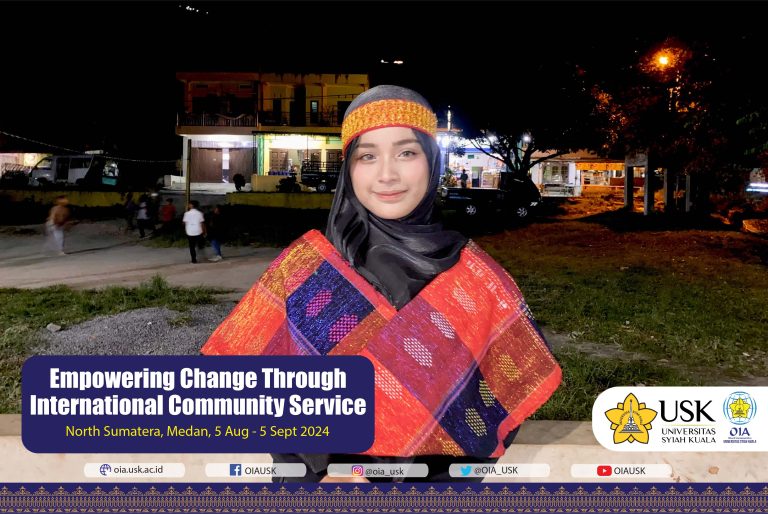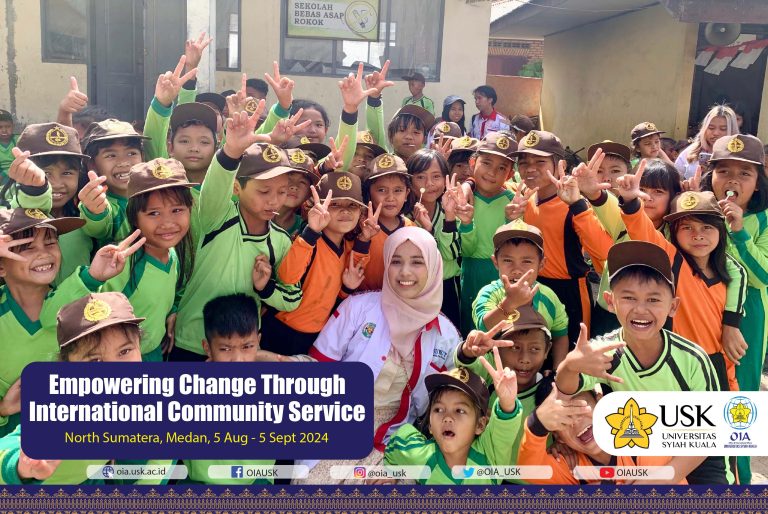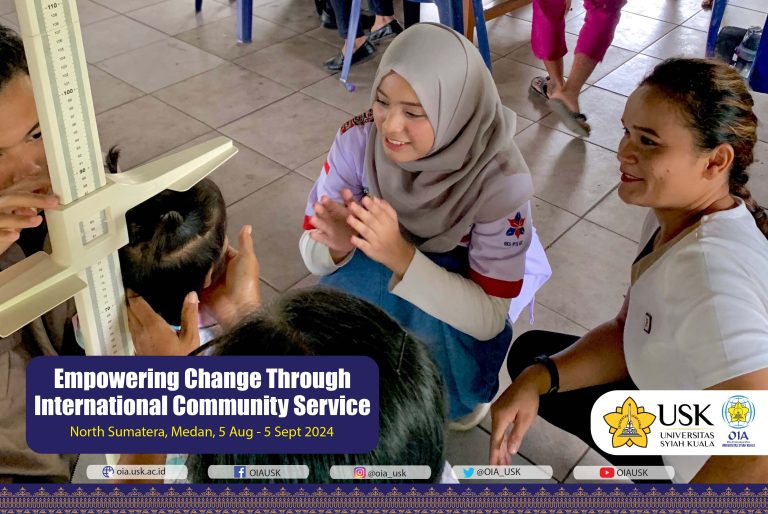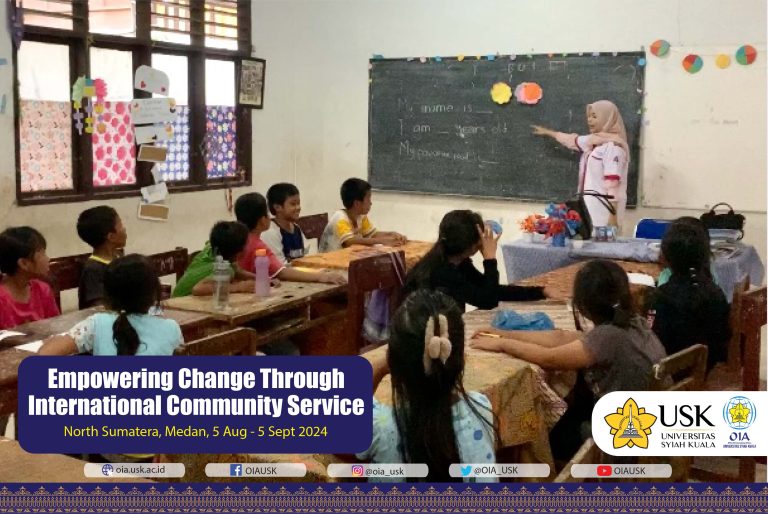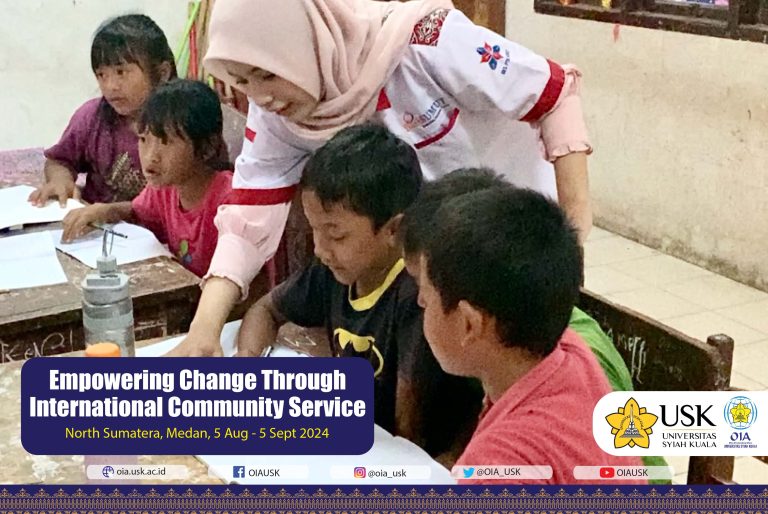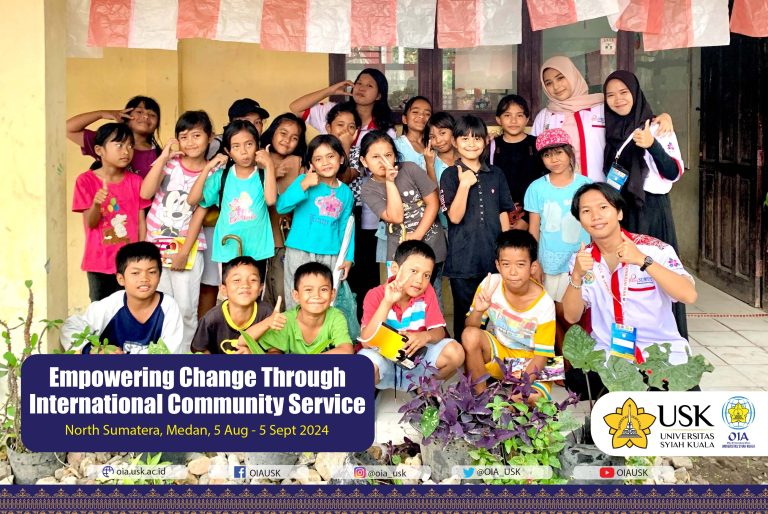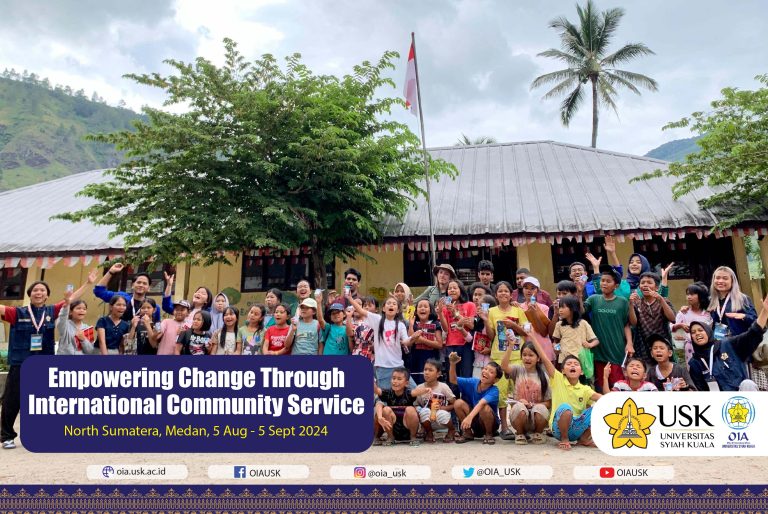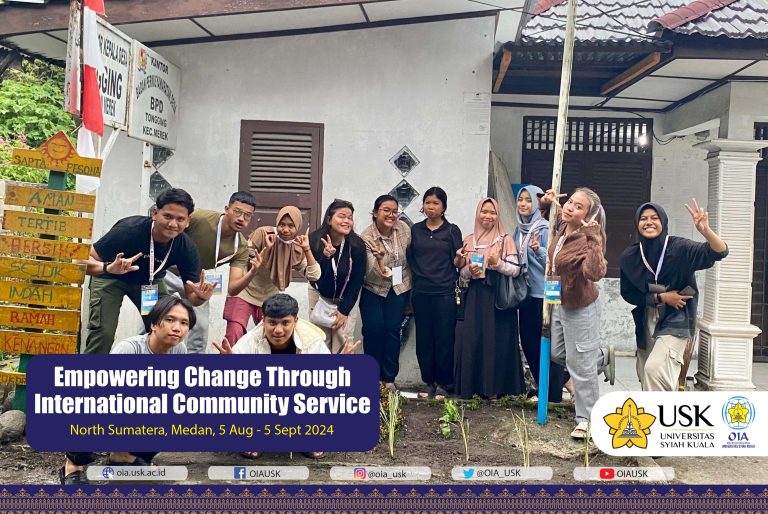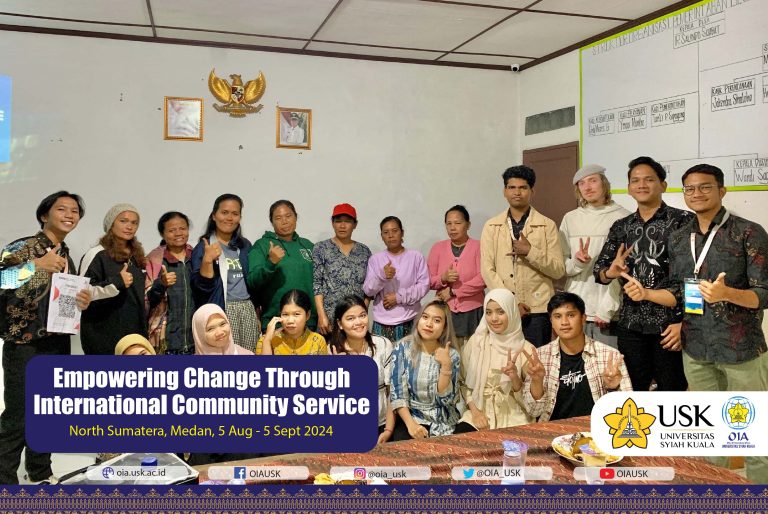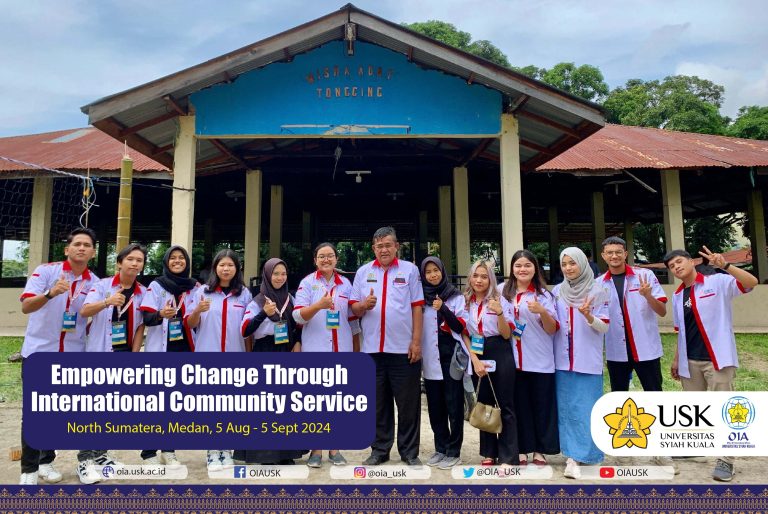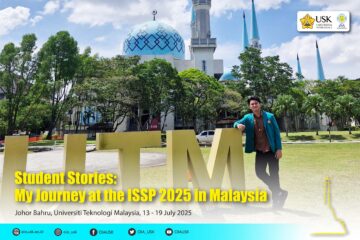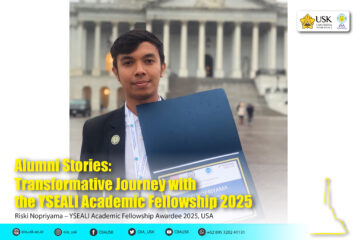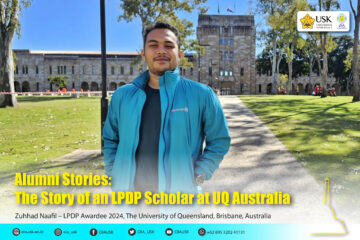Empowering Change Through International Community Service
Published by rahmi on
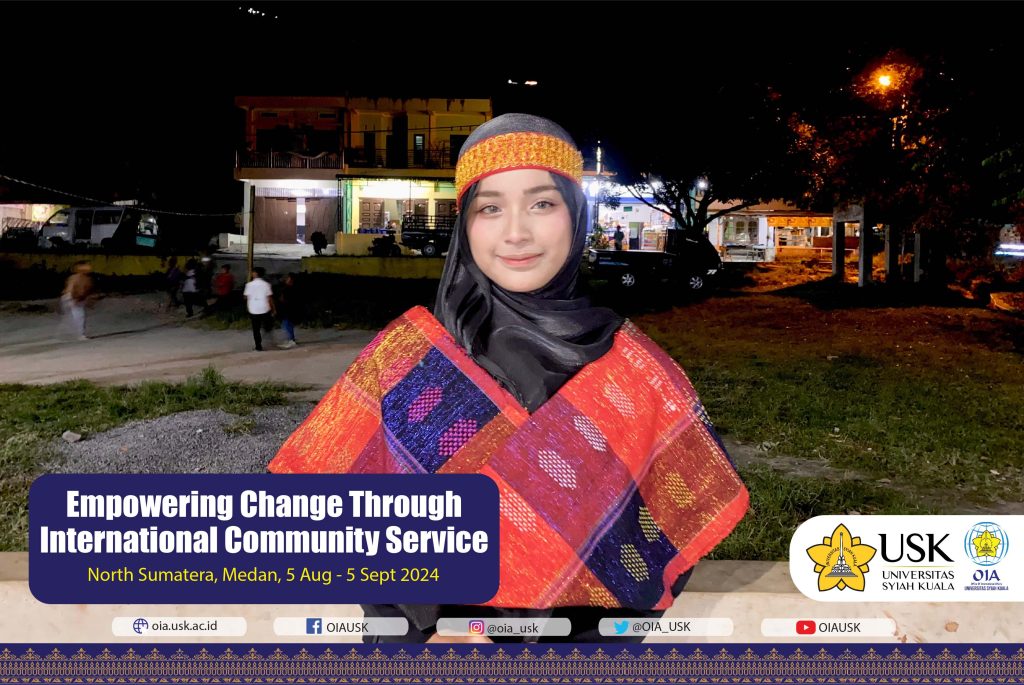
The International Community Service Program (ICSP), or Kuliah Kerja Nyata Internasional (KKN-Int), is a collaborative initiative to provide students with valuable international learning experiences. In 2024, Universitas Sumatera Utara (USU) was selected by BKS PTN Barat (Cooperation Agency of State-owned Higher Education Institutions in Western Indonesia) to host the program in Samosir Island and Karo Regency, Medan, Indonesia, and the university invited Universitas Syiah Kuala (USK) students to participate in the program. Running from August 5th to September 5th, 2024, the program aims to allow students to apply their academic knowledge to real-world situations, with this year’s theme focusing on sustainable tourism.
I was assigned to Tongging Village in Karo Regency, North Sumatra, arriving on September 5th, 2024. Our group comprised 12 students from universities across Indonesia, along with two international students from Germany and Myanmar. This diversity presented a challenge, pushing me to enhance my teamwork skills as we came from different cultural backgrounds. Before our arrival, we had carefully planned our projects according to our areas of expertise. The moment I arrived, I was captivated by the breathtaking beauty of Lake Toba. Its vast expanse, framed by lush green surroundings, felt like a piece of paradise hidden in Indonesia.
As a Veterinary Medicine undergraduate student at USK, I focused on educating young students about critical topics like sanitation, nutrition, and pollution prevention. As a Veterinary Public Health laboratory assistant at my university, I was passionate about bringing these vital lessons to the community in Tongging Village. I spent an entire day with elementary school children, teaching them important hygiene practices, such as proper handwashing techniques. I also introduced them to Indonesia’s inspiring “Isi Piringku” nutrition campaign, emphasizing the importance of maintaining a clean environment—particularly in protecting Lake Toba from harmful waste. The results were incredibly rewarding. The children eagerly grasped these lessons and enthusiastically demonstrated their new handwashing skills to each other. Beyond the classroom, the local community began to show a renewed commitment to keeping Lake Toba pristine, ensuring that its beauty endures long after our visit.
In addition to my project, our group engaged in various initiatives, such as promoting the village’s signature commodity, fried shallots, teaching English to elementary students, encouraging high school students to pursue higher education, planting medicinal herbs for the community, creating compost from organic waste, and promoting the use of QRIS, a digital payment system. We fully immersed ourselves in the local culture, despite the unique challenges of adapting to a new environment.
One personal challenge I faced during the program was being a Muslim in a predominantly Christian village. There were no mosques, and the streets were often filled with dogs. Additionally, halal food options were limited. To overcome these challenges, I prayed at home, stayed cautious around the dogs, and cooked my meals to ensure they were halal. Despite these obstacles, the experience contributed greatly to my personal growth. I embraced a different culture, collaborated with a large group over a month, and formed lasting friendships—each becoming a cherished memory. I am truly grateful for the opportunity to participate in this program, and I will carry these experiences with me for the rest of my life.
